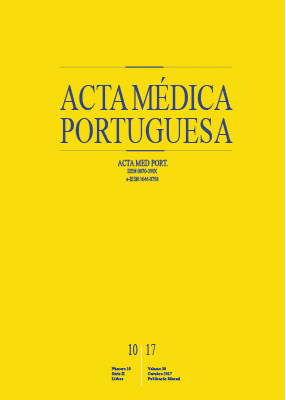Analysis of the Cochrane Review: Omega-3 Fatty Acids for the Treatment of Dementia. Cochrane Database Syst Rev. 2016;4:CD009002.
DOI:
https://doi.org/10.20344/amp.9743Keywords:
Omega-3 Fatty Acids, Dementia, Randomized Controlled Trials, Systematic ReviewAbstract
Dietary supplementation with omega-3 polyunsaturated fatty acids from fish and plant sources is commonly prescribed as a nonfarmacological alternative to improve brain functions and slow down the progression of dementia. This use is mostly based on findings of preclinical studies which established the role of omega-3 polyunsaturated fatty acids in the development and integrity of the brain, as well as epidemiological research that found evidence of malnutrition in patients with dementia. This Cochrane systematic review included three randomized, placebo-controlled trials at low risk of bias, in which omega-3 polyunsaturated fatty acids were administered to people with mild to moderate Alzheimer’s disease in the form of supplements. Of the main results of this systematic review we highlight the lack of convincing evidence for the efficacy of omega-3 polyunsaturated fatty acids supplementation in the treatment of patients with Alzheimer’s disease, as well as the low frequency of reported adverse events, with a comparable overall frequency between omega-3 polyunsaturated fatty acids and the placebo groups. The effects on other populations with dementia remain unclear. This paper aims to summarize and discuss the main results and conclusions of this systematic review, as well as its implications for the daily clinical practice.
Downloads
Downloads
Published
How to Cite
Issue
Section
License
All the articles published in the AMP are open access and comply with the requirements of funding agencies or academic institutions. The AMP is governed by the terms of the Creative Commons ‘Attribution – Non-Commercial Use - (CC-BY-NC)’ license, regarding the use by third parties.
It is the author’s responsibility to obtain approval for the reproduction of figures, tables, etc. from other publications.
Upon acceptance of an article for publication, the authors will be asked to complete the ICMJE “Copyright Liability and Copyright Sharing Statement “(http://www.actamedicaportuguesa.com/info/AMP-NormasPublicacao.pdf) and the “Declaration of Potential Conflicts of Interest” (http:// www.icmje.org/conflicts-of-interest). An e-mail will be sent to the corresponding author to acknowledge receipt of the manuscript.
After publication, the authors are authorised to make their articles available in repositories of their institutions of origin, as long as they always mention where they were published and according to the Creative Commons license.









